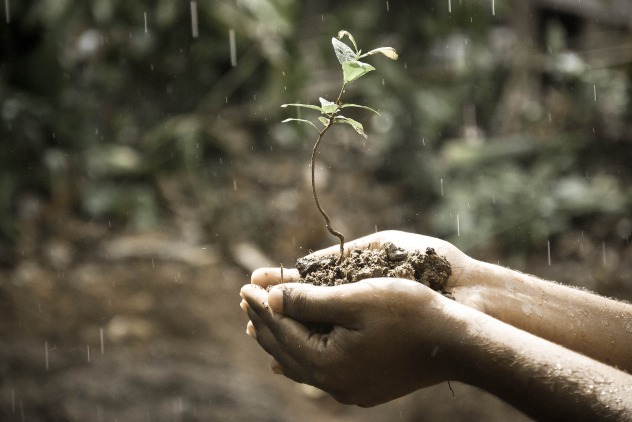
Meaning of Name: ‘Dry land,’ ‘the earth,’ ‘the ground,’ ‘soil’.
Pronunciation: /ˈfolde/ the ‘o’ is pronounced like the ‘o’ in ‘go’ and the ‘e’ is pronounced similarly to the ‘u’ in ‘cub’.
Other Names: Eorþ, Eorþe and possibly the ‘Erce’ referenced in the Æcerbot metrical charm. Comes from Proto-Germanic *fuldō. Possibly related in some way to Nerthuz, the Earth-Mother worshipped by the Suebi in Tacitus’ Germania.
Function: Folde is the earth personified and as such, embodies fertility and life in abundance. She is a vegetation deity and may be linked to the agricultural cycle, animal husbandry and the cultivation of cereal crops. She may also be connected with childbirth, marriage and rites associated with femininity and female fertility.
If associations with Nerthuz are assumed, Folde might possess a less affable aspect to her character, acting as a shadowy liminal/chthonic deity who consumes (drowns) Her sacrificial victims.
Iconography: None known. Folde might be presented as a woman reclining on the earth, surrounded by vegetation and children, as is common in Greek and Roman representations of Gaia and Tellus respectively. She may also be presented in a similar fashion as the Matres and Matronae, depicted with items such as bread, fruit (particularly apples), cornucopias and babies/children. She might also be presented similarly to Nerthuz, draped in cloth, or sat atop a cart or wagon.
Attested Sources: A single reference in the Æcerbot charm. “Hal wes þu, Folde, fira modor!”, which translates to “Hail to you, Folde, Mother of men”, in Modern English. The word also appears frequently in the Anglo-Saxon corpus, though not as a proper noun.
Interpretatio Romana: Tellus/Terra Mater
Contemporary Bīnaman: Wuldorspēd (Glorious Abundance), Wæstmbǣrness (Fruitfulness), Merewīf (Water-Witch), Mōdor (Mother), Beofung (A trembling, quaking), Swelgend (A Deep place, a place which swallows up)